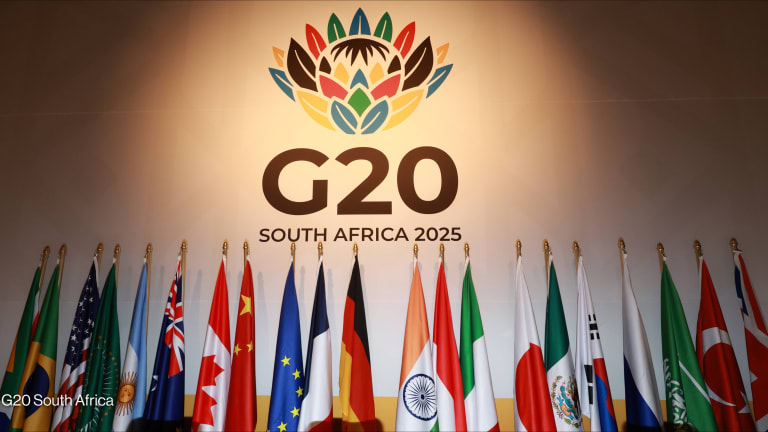UNDP Chief: Amid geopolitical paralysis, financing is acute challenge

As the world faces “extraordinary ruptures” and the global financial architecture is struggling under multiple crises, there is a limited opportunity for international organizations and governments to plan a response rather than merely reacting, said United Nations Development Programme Administrator Achim Steiner.
Discussions at the World Bank and International Monetary Fund Spring Meetings last week illustrated how the world is “struggling with the challenge of financing” as economic fallout from COVID-19 and the impact of the Ukraine war on food and fuel prices are causing global domino effects. Steiner described a “paralysis” of global institutions in the wake of the Ukraine war that is exacerbating the challenge of responding.
“Finance for development is both about the achievement of the SDGs, the 2030 agenda, but it is also about acute crisis management responses right now.”
— Achim Steiner, administrator, United Nations Development ProgrammeThe United Nations and the secretary-general are “trying to help the world understand that we are deeply connected, that we're dealing with systemic shocks, that we need to understand them in order to stand up sufficient, bold responses, which we are not doing right now,” Steiner told Devex in an interview.
Global institutions and governments must design rapid response mechanisms, but also speed the implementation of existing tools and processes, including IMF’s Resilience and Sustainability Trust — which will provide low-interest loans to low-and middle-income countries — and the debt processes put in place by the Group of 20 leading industrial nations, Steiner said.
With as many as 80 least-developed countries facing debt distress, the current situation is “almost” unprecedented in post-war history, Steiner said, adding that the U.N.’s global crisis response group was established to address the critical need for global insights, foresight, and strategy.
“We are trying to help the world understand that it still is in a moment where it can design a response rather than simply reacting by default,” Steiner said.
But the “window is extremely narrow,” he added.
There is the specter of debt defaults, which could trigger a widespread financial crisis and an urgent need to inject cash into economies to deal with soaring food prices, Steiner said, adding that a 40% increase the costs of food staples means people simply cannot afford to buy food, even if it is available. These problems can easily lead to political frustrations and protests that could hinder the ability of governments to function, he said.
“Finance for development is both about the achievement of the SDGs, the 2030 agenda, but it is also about acute crisis management responses right now,” he said.
UNDP’s role is to figure out how to help countries cope with the crises and assist them to develop their financing strategies. One way is through the Integrated National Financing Framework, where it supports countries to determine how to finance their national development strategies. INFFs are a planning and implementation tool that helps countries craft appropriate systems and regulations to prioritize and mobilize financing.
The U.N. on Thursday launched a new facility to help the INFF process. The facility — backed by UNDP, the U.N. Department of Economic and Social Affairs, the Organisation for Economic Co-operation and Development, the European Union, and the Italian and Swedish governments — will support the more than 80 countries undertaking INFFs.
Those countries are working to push more than 250 financing reforms through the process and some have already made significant moves — the Uzbekistan government issued an SDG bond in 2021, Cape Verde launched a “blue economy” sustainable financing platform the same year, and earlier this month the Mongolian Stock Exchange published environmental, social, and governance reporting guidance.
The new INFF facility will respond to the demands from some of the countries for additional technical support, increased cross-sectoral cooperation, and a platform for countries to learn from one another.

Search for articles
Most Read
- 1
- 2
- 3
- 4
- 5








